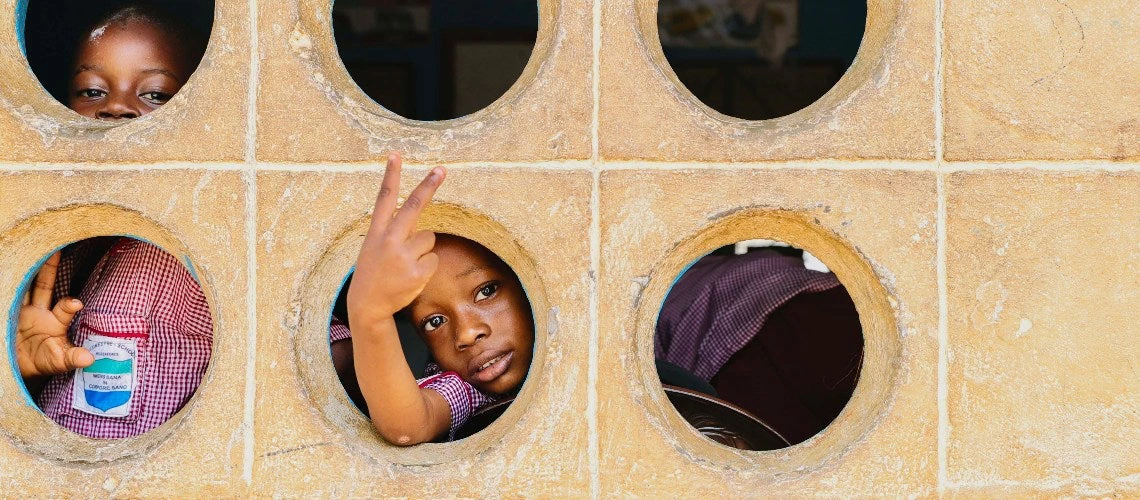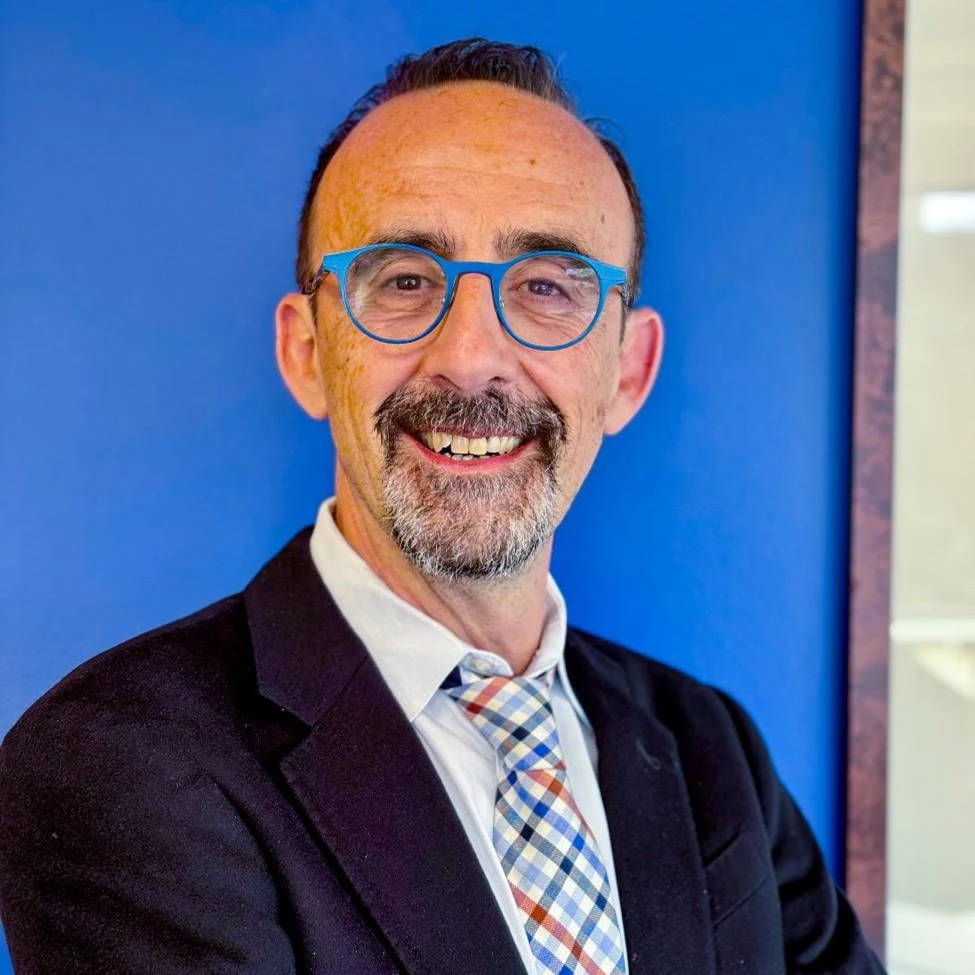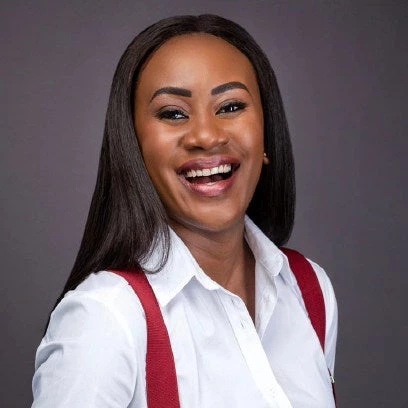 Students at St Luke's Pre-primary school in Wilberforce, Sierra Leone. The school has received teaching and learning materials from the government and the World Bank for the education of the children. Copyright: Erick Kaglan/World Bank
Students at St Luke's Pre-primary school in Wilberforce, Sierra Leone. The school has received teaching and learning materials from the government and the World Bank for the education of the children. Copyright: Erick Kaglan/World Bank
This is a huge opportunity for the continent, but also a serious challenge. How can we ensure that these young people have access to quality and inclusive education and skills training to prepare them for the future?
We firmly believe that youth must be actively involved in shaping and designing policies that affect them. Agenda 2063—a blueprint and master plan for transforming Africa into a global powerhouse—emphasizes the potential of Africa's people, especially children, youth, and women, in driving the continent's sustainable development. Moreover, the Africa Youth Charter further reiterates the importance of educating youth.
Why education matters
Education is not only a human right, but also a powerful driver of socioeconomic development. That’s why, the African Union and the World Bank are strengthening their collaboration to put education on the front burner of Africa’s transformation by investing in the current and next generations.
One of the most urgent issues to be tackled is the lack of foundational skills among African learners. Foundational skills are the basic skills in literacy, numeracy, and digital literacy that enable learners to acquire further knowledge and skills. Children in Africa are at least five times less likely to learn the basics than those living elsewhere. This means that millions of children are living without the skills they need to succeed in life and work.
Another issue is the mismatch between the current education and skills development systems and the needs and aspirations of African youth. Many young people feel that their education or vocational skill set do not equip them with the relevant competencies for the job market and needs of the 21st century. They also face challenges accessing quality education and skills development opportunities, especially in rural areas as well as settings of fragility, conflict, and violence (FCV). Moreover, they often lack voice and representation in education policy making and implementation.
How to transform education in Africa
To address these challenges, we need to transform education in Africa. This means rethinking and redesigning the education system to make it more relevant, inclusive, innovative, and responsive to the needs and aspirations of African youth.
The AU youth-led manifesto on transforming education in Africa is a positive first step forward. This manifesto, led by the AU Youth Envoy, is based on consultations with thousands of young people across the continent – from the visit to the Ekhudu District Community in Abuja to key African Edtech innovation hubs – and reflects their vision and recommendations for improving education and skills development. Some of the key proposals include:
- Implementing policies and programs that ensure access and equity for girls, refugees, persons with disabilities, and other marginalized groups.
- Investing in teacher training and incentive programs to attract and retain qualified and motivated teachers.
- Developing curricula that foster creativity, critical thinking, problem-solving, and collaboration skills among learners.
- Digitizing learning materials and expanding access to digital devices and connectivity for learners and teachers.
How do we turn our youth recommendations into concrete action?
At the World Bank, we are working on the ground with the various African governments and partners to implement impactful projects, such as the Edo Basic Education Sector and Skills Transformation project, on improving teaching and learning in basic education; the Adolescent Girls Initiative for Learning and Empowerment program, on strengthening secondary education opportunities among girls; the Africa Centers of Excellence project on addressing higher-level skills development needs and innovative research; the Tertiary Education & Skills multi-donor trust fund with the support of Mastercard Foundation to prepare youth and adults for the future of work; and other key initiatives (i.e. Foundational Learning Coalition, Accelerator Program, Teach & Coach, and so forth).
At the African Union, over the last year, we have launched initiatives such as the Lead(H)er fellowship for young girls, empowering them to become advocates for change. We've also bridged the digital education gap with the Make Africa Digital (M.A.D) campaign to prepare our youth for a tech-driven world. Through joint advocacy we are excited for the AU theme of the year for 2024, which will be “Transforming Education in Africa.” Our 2nd African Union Youth Town Hall meeting will include an intergenerational policy dialogue to hold our leaders accountable at the next AU Heads of States Summit.
Join the conversation
We cannot do this alone. We need the support and collaboration of all stakeholders, including governments, civil society, the private sector, academia, media, and most importantly, young people.
That’s why we invite you to join the conversation and share your thoughts and ideas on how to transform education in Africa. What do you think are the most pressing issues facing education and skills development in Africa today? How can we work together to address them? What are some of the best practices or innovations you have seen or experienced?
Let’s keep the conversation going on social media using the hashtag #TransformingEducation. Together, we can make a difference for ourselves and future generations.
To receive weekly articles, sign-up here



Join the Conversation